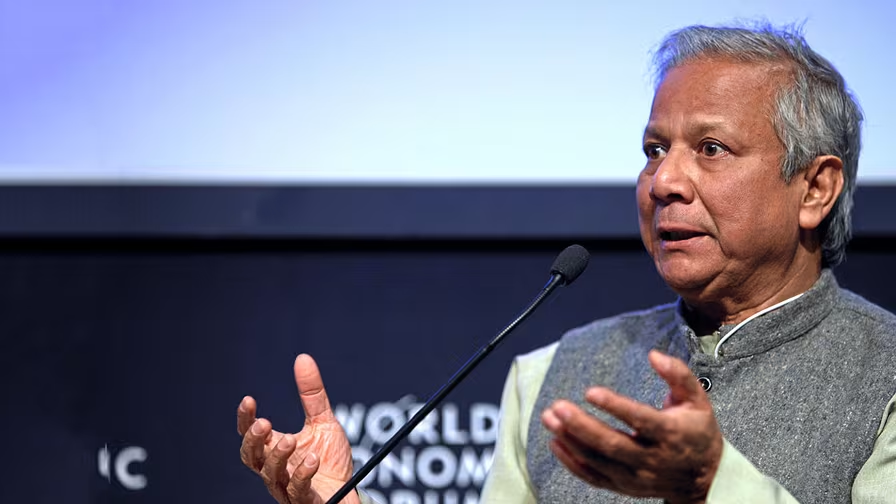
Sustainability Leadership and Corporate Responsibility
Master the fundamentals of sustainability and corporate responsibility. Turn global challenges into sustainable growth opportunities and achieve a positive impact with your business.
SLCRPlease enter a keyword and click the arrow to search the site
Or explore one of the areas below
How leaders can make their organisations part of the solution to the environmental and social challenges we collectively face

Sustainability has long been a buzzword used by the most forward-thinking companies, but it has never been more vital for all organisations to translate the word into action.
We live in a world where everyone has a voice. Customers, shareholders and society as a whole demand a higher degree of accountability and transparency. And business leaders are beginning to listen: a growing number are boldly adopting sustainability as their organisations’ core corporate purpose.
It’s a response that cannot come soon enough, believes Dr Ioannis Ioannou, Associate Professor of Strategy and Entrepreneurship at London Business School, whose research focuses on sustainability and corporate social responsibility (CSR). Through his work he seeks to understand whether, how and the extent to which the modern business organisation contributes towards building a sustainable future.
“Sustainability is the challenge of our time, it is the task of our generation,” says Dr Ioannou. “We need to leave the planet in better shape than we found it. And that challenge extends to pretty much every aspect of our life right now – our lifestyles, our jobs, our economy.”
Sustainability leadership
He continues: “There is really big doubt about the ability of the capitalist system to deliver value for everybody. We have created a lot of financial value, but at a huge cost to the environment, the planet and society. This, in turn, creates a lot of pressure for companies to adopt a new model of corporate leadership which talks to these issues and meets stakeholder demands, all while increasing competitive advantage.”
Addressing such issues is no mean feat, which is why Dr Ioannou created the LBS Sustainability Leadership and Corporate Responsibility programme. It is aimed at senior leaders who are tasked with or seeking to develop sustainable practices within their organisation. Over six weeks of learning, participants are provided with the tools to reconceptualise critical global challenges as growth opportunities, while also achieving a positive social impact.
That begins with understanding what sustainability is and why it is relevant to all businesses. Simply put, sustainability means integrating environmental and social issues into the core of the company’s business model and strategy. This includes measures to address everything from growing income inequality to the devastation of the natural environment and the massive loss of biodiversity. But why do businesses need to prove that they are part of the solution, not the problem?
“Sustainability is the biggest disruption that businesses have faced in the last 50 years,” Dr Ioannou replies. “And that is because businesses lack the experience, knowledge and expertise to tackle the issues in what we call the broader environmental and social domains, simply because they haven’t done so in the past. What businesses need to realise is that those who don’t make the necessary investment to adapt are likely to perish through disruption.”
There is, of course, no overnight fix for companies wanting to place sustainability at the centre of their business model. Rather, Dr Ioannou warns of the “multidimensional pressures” they face from governments, regulators and civil society.
The savviest business leaders will also need to be in tune with their stakeholders. As the expectations on corporate responsibility increase, professional communications and good intentions are no longer enough. Stakeholders are looking for transparency, action and accountability. That begins with the labour market and a predominantly millennial workforce who want the values of the companies they work for to align with their personal values. “Ignore sustainability in reference to the labour market and your competitors are going to have preferential access to human capital,” Dr Ioannou says.
Similarly, many investors monitor the social performance of companies; something that’s become easier as regulations increase
and organisations face more pressure to reveal details of everything from their supply-chain standards to emissions produced. Greater transparency also helps expose greenwashing (trying to appear more environmentally and socially responsible than the business really is).
And let’s not forget consumers, who are more informed than ever before. Brand loyalty is no longer guaranteed. Ignore your economic, environmental and social footprints and you run the risk of losing their custom altogether.
The good news is that this doesn’t have to be the case, says Dr Ioannou. But, as a senior leader, you need to be willing to adapt your model to respond to ever-evolving factors. “In terms of sustainability, the conditions are massively changing, so you require a massive rethinking of your business model,” he says. “That begins with accepting that what might have worked in the past won’t work now. Think of companies like Kodak or Blockbuster – once you crack the code, you can become a successful business, but if the conditions change, you must, too.”
Building a strategy to transition to responsible business should be attainable for any company – but, to stand out from the crowd and transform your competitive advantage, Dr Ioannou suggests thinking like a disruptor. Many companies who are embracing sustainability will adopt emerging common practices by following regulations and mitigating risks, but they can only ever expect to be “middle of the pack” in so doing.
In contrast, the most visionary of companies and leaders “are the ones that try to reinvent themselves, their business model and their strategy in a way that actually takes one of these opportunities and scales that really quickly,” says Dr Ioannou. “Look at Tesla, for example, and what they did in electric vehicles. Because now, with every major city around the world starting to ban fossil-fuel cars, it’s evident that there’s a huge market opportunity. An innovative approach to sustainable business can shake up even the most traditional of industries.”
To begin that process, Dr Ioannou outlines four key principles that business leaders must master in order to embed a culture of sustainability into their organisation’s DNA; thus translating purpose into practice and, ultimately, results.
First, when a company is genuinely committed to a purpose (in this case, sustainability), it is reflected in their governance structure. “The top of an organisation sets the tone, signals a credible pledge to purpose as well as monitoring and advising,” says Dr Ioannou. “And leaders who set ambitious goals are more likely to inspire, enable and empower their people to find innovative solutions.”
Second, Dr Ioannou’s research shows that companies driven by a “high-sustainability” purpose are more focused on understanding the needs of, and creating purposeful engagements with, stakeholders. “We’re way beyond the world in which you deal with employees only when they strike, or with customers only when they boycott,” he acknowledges. “But you need to look at your stakeholder-management process essentially as an investment that will create relationships. These relationships are the intangible assets that you can then use in your value-creation model. Simply put, more satisfied employees and customers can really enhance the quality and effectiveness of your innovation process.”
The third principle focuses on long-term decision-making horizons, and how responsible leaders play a critical role in communicating the orientation of their organisation beyond the short term. “Rather than only looking at today as you devise a strategy, you need to convey change will take time and effort and investment,” advises Dr Ioannou. “Communicating that will afford you external legitimacy and the patience of your stakeholders.”
Fourthly, he notes that high-sustainability companies are more likely to measure and report on environmental and social metrics, in addition to financial results. Being transparent and ultimately accountable is essential for leaders in determining how well they are executing their purpose. “Provide your investors with accurate, trustworthy data, financial and non-financial, so they get a full picture of how you run your business,” he advises. “It’s no longer just about what you do within the walls of your own business. Showing you meet human rights or environmental standards ripples right through your supply chain. In essence, being accountable helps you bring more people on board – and ultimately impact more lives.”
While all four principles are equally important, they are also intrinsically linked, says Dr Ioannou. And of course, embedding them into the organisational DNA does not come without costs. “But is it really a cost or is it an investment?” he asks. “My argument is that, if you actually get sustainability right, then it does lead to better, more thriving businesses. There are always trade-offs in management, but the best companies use them to distinguish themselves in the sustainability space.”
Such change also doesn’t happen overnight. “It’s always important to understand the stage a company is at today, but even more important to be able to evaluate the trajectory. Are you moving in the right direction, with the right speed and magnitude of change?” asks Dr Ioannou.
By having the tools, frameworks and insights to build a roadmap to achieve goals and guide efforts towards sustainability leadership, organisations can be future-proofed and also gain a long-term competitive advantage. More significantly, doing so enables business to become a force for change and add value for society as a whole.
And that is something to be really positive about, concludes Dr Ioannou. “Together, we can have a profound impact on the way the world does business and the way business impacts the world. But it has to be a collaborative effort. And it’s one that cannot wait.”
Discover fresh perspectives and research insights from LBS

Master the fundamentals of sustainability and corporate responsibility. Turn global challenges into sustainable growth opportunities and achieve a positive impact with your business.
SLCR
Think at London Business School
From sustainable superfoods to national energy supply, from waste reduction to carbon management – these LBS alumni show us how it’s done
By Sam Bartlett
Find out more
Think at London Business School
Nobel Prize-winning economist Muhammad Yunus tells Professor Kamalini Ramdas that Covid-19 could be a catalyst for saving the world
By London Business School
Find out more
Think at London Business School
LBS students and the professionals at Atypical Partner share their views on sustainable investing in 2021
By Rosie Parry
Find out more
Master the fundamentals of sustainability and corporate responsibility. Turn global challenges into sustainable growth opportunities and achieve a positive impact with your business.
SLCR
Think at London Business School
From sustainable superfoods to national energy supply, from waste reduction to carbon management – these LBS alumni show us how it’s done
By Sam Bartlett
Find out more
Think at London Business School
Nobel Prize-winning economist Muhammad Yunus tells Professor Kamalini Ramdas that Covid-19 could be a catalyst for saving the world
By London Business School
Find out more
Think at London Business School
LBS students and the professionals at Atypical Partner share their views on sustainable investing in 2021
By Rosie Parry
Find out more